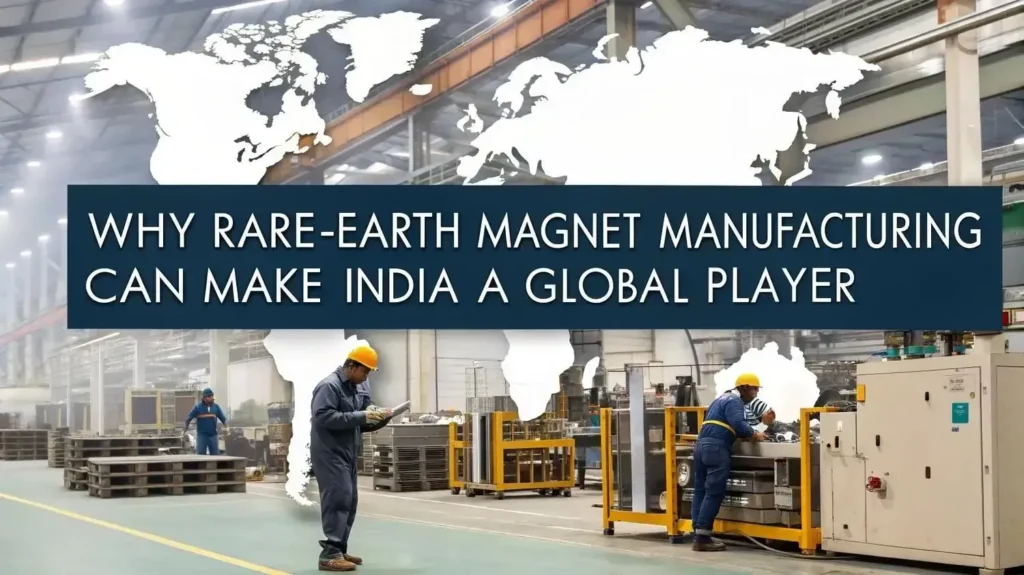Expanded Polystyrene (EPS) has become a key material in multiple industries due to its lightweight, insulating, and cushioning properties. From packaging and construction to decorative applications and food storage, EPS finds widespread use across the globe. For entrepreneurs seeking a sustainable and scalable manufacturing venture, the EPS Manufacturing business presents a compelling opportunity.
Understanding the EPS Manufacturing Industry
The EPS Manufacturing industry has evolved significantly in recent decades. This foam plastic material, derived from polystyrene, is produced through a polymerization process that results in lightweight, rigid, and resilient products. These properties make EPS a favorite material in industries like packaging, construction, and electronics. The demand for EPS is projected to continue rising due to its versatility, affordability, and energy-efficient properties.
Starting an EPS Manufacturing business requires a combination of technical know-how, market analysis, and strategic planning. It is crucial to understand not only the product and its applications but also the key cost factors, regulatory requirements, and production technology involved.
Business Plan Structure
To successfully establish an EPS Manufacturing business, the entrepreneur must follow a structured business plan. Here’s a breakdown of the major components:
1. Market Research and Feasibility Study
Begin by analyzing the local and global demand for EPS products. The construction industry in particular is a major consumer of EPS for insulation boards and roofing. Likewise, the packaging sector utilizes EPS for its shock-absorbent and moisture-resistant properties. By understanding these markets, you can tailor your production capacity and product offerings accordingly.
2. Location and Infrastructure
Setting up an EPS Manufacturing unit requires strategic location planning. The ideal site should be close to raw material suppliers, utility services, and transport networks. Additionally, the factory should comply with zoning and environmental regulations.
You’ll need ample space for production units, raw material storage, drying zones, and finished goods warehousing. Factory layout should facilitate smooth movement of materials and finished products.
3. Machinery and Equipment
EPS manufacturing involves processes like pre-expansion, aging, molding, and cutting. The key equipment includes:
- Pre-expander
- Silo storage for aging
- Block molding machine
- Cutting machine (horizontal and vertical)
- Steam boiler
- Compressor
- Packaging equipment
Investing in semi-automatic or fully automatic machines depends on your scale of operation and budget. A fully automatic setup ensures higher production efficiency but demands a larger capital outlay.
4. Raw Materials Required
The primary raw material in EPS Manufacturing is expandable polystyrene beads. Other consumables include lubricants, anti-static agents, and packaging materials like plastic sheets and cartons. Sourcing high-quality raw materials ensures product durability and customer satisfaction.
5. Production Process
The typical EPS Manufacturing process involves the following steps:
- Pre-expansion: EPS beads are heated with steam, causing them to expand up to 40 times their original volume.
- Aging: Expanded beads are stored in silos to allow air penetration and stabilization.
- Molding: The aged beads are placed into molds and heated to fuse them into desired shapes—blocks, sheets, or custom molds.
- Cutting and Shaping: After molding, the EPS blocks are cut into the required sizes using heated wires or blades.
- Finishing and Packing: The final products are inspected, packed, and dispatched.
Efficiency in this production cycle is key to reducing costs and maximizing profitability.
6. Manpower Requirement
An average-sized EPS Manufacturing unit would require the following personnel:
- Plant Manager
- Machine Operators
- Quality Control Supervisor
- Maintenance Technician
- Packing and Loading Staff
- Sales and Administrative Staff
Proper training is essential, especially for operating high-temperature equipment and managing quality control procedures.
7. Investment and Financial Planning
The investment required for starting an EPS Manufacturing unit varies depending on scale. For a small to medium-sized plant, an initial capital of ?50 lakh to ?1.5 crore (approximately USD 60,000 to USD 180,000) is typical. Key cost components include:
- Land and building (if purchased)
- Machinery and installation
- Raw materials
- Labor and operational expenses
- Licensing and legal fees
- Marketing and distribution setup
Prepare detailed financial projections including break-even analysis, cash flow forecast, and ROI to attract investors and secure loans.
8. Licensing and Compliance
In India and many other countries, running an EPS Manufacturing business requires regulatory clearances:
- Factory license under the Factories Act
- Consent from Pollution Control Board
- GST registration
- Udyam registration (for MSME classification)
- Fire and safety clearance
Additionally, quality certifications such as ISO 9001 can boost your credibility in the market.
9. Marketing and Sales Strategy
Given the growing demand, effective marketing is crucial. Adopt a B2B sales model targeting:
- Real estate and construction companies
- Packaging suppliers
- Electronic equipment manufacturers
- Cold storage companies
- Food delivery and catering services
Use digital marketing tools, participate in trade exhibitions, and build partnerships with wholesalers and contractors. Offering customized products and reliable after-sales service can further enhance your competitive edge.
10. Sustainability and Waste Management
EPS often faces criticism for being non-biodegradable. However, modern EPS Manufacturing units can integrate recycling technologies. Waste EPS can be collected, shredded, and reused in the production process or compacted for resale.
Promoting eco-friendly alternatives, using clean energy, and ensuring proper waste disposal practices are crucial to maintaining a sustainable operation and gaining public trust.
Challenges in the EPS Manufacturing Sector
Despite its potential, the EPS Manufacturing business comes with its share of challenges:
- Volatility in raw material prices due to dependence on petrochemicals
- Competition from alternative materials like polyurethane and biodegradable foam
- Regulatory pressures due to environmental concerns
- Transport difficulties due to EPS’s bulk but low weight nature
Entrepreneurs must stay updated on industry trends and adopt innovative practices to stay ahead.
Future Prospects and Trends
The global EPS market is expected to grow steadily, driven by increasing urbanization, demand for sustainable insulation, and rapid e-commerce growth fueling the packaging sector.
Key trends shaping the future of EPS Manufacturing include:
- Development of fire-retardant EPS variants
- Integration of smart manufacturing and automation
- Use of recycled EPS to promote green manufacturing
- Growing adoption in the agricultural and aquaculture sectors
Investors and entrepreneurs with a forward-looking approach will find this a lucrative and adaptable industry.
Conclusion
Establishing an EPS Manufacturing business involves thoughtful planning, financial investment, and market alignment. With rising demand in packaging, construction, and insulation sectors, it presents immense business potential. However, success in this industry depends on technological proficiency, cost control, regulatory compliance, and a strong sales network.
Whether you’re a seasoned industrialist or a new entrepreneur, EPS Manufacturing offers a rewarding path for sustainable growth in today’s industrial landscape.
Visit the page Select and Choose the Right Business Startup for You for sorting out the questions arising in your mind before starting any business and know which start-up you can plan. We, at NPCS, endeavor to make business selection a simple and convenient step for any entrepreneur/startup. Our expert team, by capitalizing on its dexterity and decade’s long experience in the field, has created a list of profitable ventures for entrepreneurs who wish to diversify or venture. The list so mentioned is updated regularly to give you a regular dose of new emerging opportunities.




